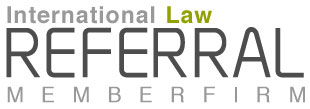SAFE Circular Implementing Opinion 171
Nov. 2006 – Morrison / Foerster
On the heels of promulgation of the Opinion on Regulating the Entry into and the Administration of Foreign Investment in the Real Estate Market (“Opinion 171â€) (关于规范房地产市场外资准入和管ç†çš„æ„è§) (Jian Zhu Fang [2006] No. 171), the State Administration of Foreign Exchange (“SAFEâ€) and the Ministry of Construction jointly issued the Circular Concerning Certain Issues Regarding Regulation of Foreign Exchange Management in the Real Estate Market (“Foreign Exchange Circularâ€) (国家外汇管ç†å±€ã€å»ºè®¾éƒ¨å…³äºŽè§„范房地产市场外汇管ç†æœ‰å…³é—®é¢˜çš„通知; Hui Fa [2006] No. 47) on September 1, 2006.
The Foreign Exchange Circular sets out specific measures guiding SAFE branches in their administration of Opinion 171 through their role of monitoring and supervising foreign exchange transactions. The key points of the Foreign Exchange Circular include the following:
* Foreign exchange remitted into China for the purchase of commodity premises by a foreign company’s branch or representative office must be converted into Renminbi and directly wired to the real estate developer’s Renminbi account.
* If the purchase is not completed for any reason, foreign currency may be purchased with the Renminbi purchase funds and refunded to the payor by outbound remittance.
* If a foreign company’s branch or representative office or a foreign individual sells commodity premises, the Renminbi sales proceeds may be used to purchase foreign currency, which can be remitted out of China.
* Reflecting principles of Opinion 171, the Foreign Exchange Circular states that the relevant SAFE branch will not register the foreign debt of a foreign-invested real estate enterprise (“FIREEâ€) or confirm settlement of foreign exchange loan proceeds if (a) the enterprise’s registered capital has not been fully paid up, (b) it has not yet obtained a “land use certificate†for the land, or (c) the paid-in capital of the development project is less than 35% of the total investment of the project.
* If a foreign company or individual acquires a domestic real estate enterprise or a Chinese party’s interest in an FIREE but fails to pay the purchase price in a lump sum, the relevant SAFE branch should not process related foreign exchange registrations. Where the documentation related to an FIREE provides for any form of fixed return for any party, likewise the relevant SAFE branch must not process any foreign exchange registration or amendment thereof for the FIREE.


